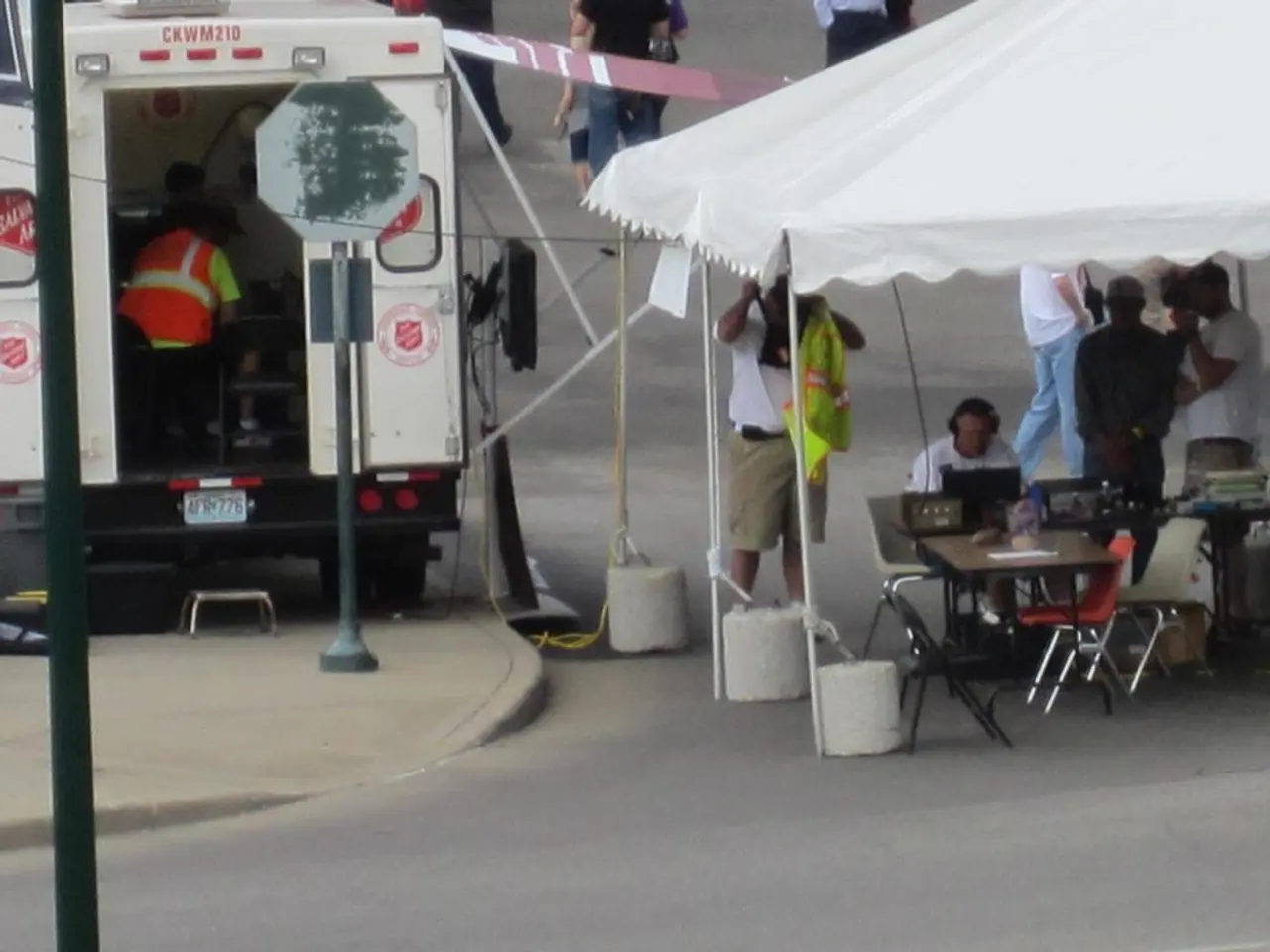Over 1,700 Palestinians met their demise in Gaza during their desperate pursuit for sustenance
In the embattled Gaza Strip, a humanitarian crisis of unprecedented proportions continues to unfold. The situation has been marked by forced displacement, severe malnutrition, and a death toll that surpasses 60,000, with nearly one-fourth of the population at risk of catastrophic hunger [2][4].
Since late May 2025, the crisis has escalated further, with at least 1,373 Palestinians being killed while seeking food aid [1][3]. The majority of these deaths (994) occurred near locations controlled by the Gaza Humanitarian Foundation (GHF), a private entity supported by Israel and the United States, which has been responsible for the distribution of food aid in the Palestinian enclave since May [3].
According to reports, Israeli forces have been accused of opening indiscriminate fire on people seeking aid at these sites [1]. The UN Human Rights Office for the Gaza Strip has issued a statement regarding these killings, but has no information indicating the involvement of armed elements in these tragedies [4].
The situation has been further complicated by chaos and security issues on roads leading to aid delivery points, as well as Israeli troops firing on aid-seekers [2][3]. Despite some aid entering Gaza, the quantity is deemed insufficient by UN agencies.
In response to these alarming developments, UN experts have called for the immediate dismantling of the Gaza Humanitarian Foundation, criticizing its operations as a form of "humanitarian camouflage" for Israeli actions [1]. The Israeli military has escalated attacks across Gaza City, prompting urgent calls from the UN for a halt to these operations to prevent a humanitarian catastrophe [4].
International aid efforts, such as Japan's contribution to the World Food Programme, have aimed to provide emergency food assistance. However, a ceasefire and sustained access are seen as crucial to preventing a full-scale famine [4].
Recent incidents have contributed to the collapse of security forces and directly led to disturbances around supply convoys. Prior to May, the UN previously had around 400 distribution locations throughout the Gaza Strip. Since then, the number of locations has significantly decreased.
The UN Human Rights Office for the Gaza Strip has recorded at least 1,760 Palestinians killed since late May, with an additional 766 deaths occurring along supply convoy routes [4]. The Israeli authorities have accused the Palestinian Islamic movement Hamas, in power in the Gaza Strip, of firing on Palestinians near aid distribution sites. As of August 1, the UN office reported at least 1,373 Palestinians killed in similar circumstances [4].
However, since August 1, 2023, the UN office has not reported any new killings of Palestinians. On Wednesday afternoon, Israeli aerial attacks in the areas of As Saftawi and Al Karameh, in northern Gaza, reportedly killed at least 12 Palestinians and injured at least 18 others [4]. Hours later, another Israeli aerial attack on a third apparent security personnel group in the area of At Twam, also in northern Gaza, reportedly killed six Palestinians [4].
These incidents underscore the urgent need for a resolution to the ongoing crisis in Gaza, ensuring the safety and well-being of its people and preventing further loss of life.
The escalating conflict in the Gaza Strip, marked by war-and-conflicts and accompanied by political turmoil, has led to a humanitarian crisis of unprecedented proportions. In the midst of this crisis, politics and general news are rife with accounts of confrontations near aid distribution points, resulting in the killings of more than 1,373 Palestinians [1][3].








